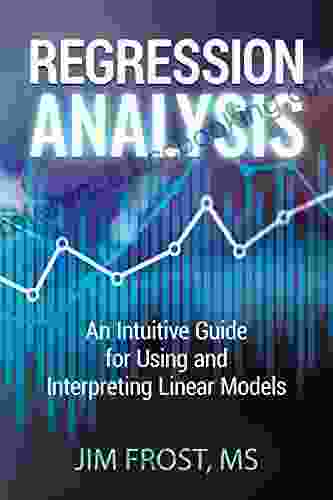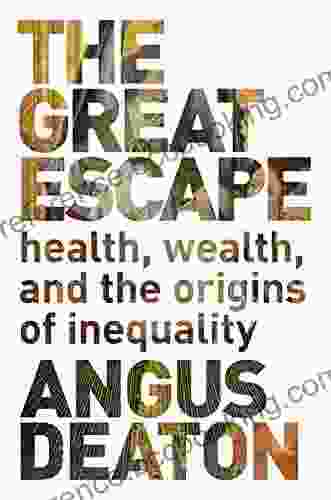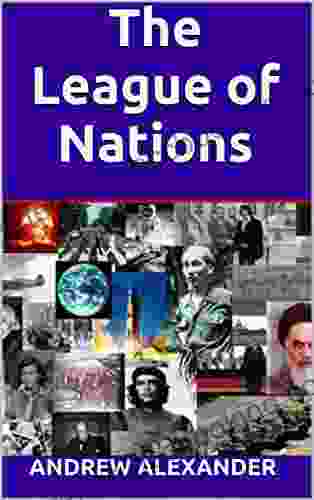Health, Wealth, and the Origins of Inequality: A Comprehensive Guide to Understanding Societal Disparities

In the intricate tapestry of human society, intertwined threads of health, wealth, and inequality weave a complex pattern. The disparities that exist among us are not mere coincidences; they are the product of deep-rooted historical, social, and economic forces. This article delves into the origins of inequality, exploring the intricate connections between health and wealth and shedding light on the profound impact these factors have on shaping our lives.
Part 1: The Nexus of Health and Wealth
Health and wealth are inextricably linked. Good health enables individuals to pursue education, employment, and other opportunities that contribute to economic well-being. Conversely, wealth provides access to resources such as quality healthcare, nutrition, and education, which in turn promote good health.
4.5 out of 5
| Language | : | English |
| File size | : | 5013 KB |
| Text-to-Speech | : | Enabled |
| Screen Reader | : | Supported |
| Enhanced typesetting | : | Enabled |
| X-Ray | : | Enabled |
| Word Wise | : | Enabled |
| Print length | : | 362 pages |
However, this virtuous cycle can be broken when disparities exist. Poverty often leads to poor health outcomes due to inadequate nutrition, limited access to healthcare, and exposure to environmental hazards. Conversely, poor health can trap individuals in a cycle of poverty, as it limits their ability to work and earn a stable income.
Part 2: The Historical Roots of Inequality
The origins of inequality can be traced back to historical events that have shaped societies worldwide. Colonialism, slavery, and the rise of capitalism have all played a role in creating and perpetuating disparities. These systems have often favored certain groups over others, leading to unequal access to resources, education, and opportunities.
Discrimination based on race, gender, and other characteristics has also contributed to inequality. Systemic barriers and biases have limited the opportunities of marginalized groups, preventing them from fully participating in society and accumulating wealth.
Part 3: The Impact of Social and Economic Factors
Social and economic factors also play a significant role in shaping health and wealth inequalities. Education, employment, and housing are important determinants of health and well-being. Access to quality education empowers individuals with the skills and knowledge needed to succeed in the labor market and earn a decent income. Stable employment provides financial security and access to health insurance, further promoting good health.
Adequate housing is essential for physical and mental health. Crowded or unsanitary living conditions can lead to respiratory problems, infections, and other health issues. Homeownership, on the other hand, can provide stability, a sense of belonging, and opportunities for wealth accumulation.
Part 4: Addressing Inequality through Policy and Practice
Addressing inequality requires a multi-faceted approach that tackles the root causes and creates equitable opportunities for all. Policymakers, community leaders, and individuals have a role to play in reducing disparities and promoting a more just and equitable society.
Policies that invest in early childhood education, affordable housing, and quality healthcare can help level the playing field and create a foundation for success. Programs that support marginalized groups and break down systemic barriers can also promote equality of opportunity.
Individuals can also make a difference by challenging biases, supporting diversity, and advocating for policies that promote equity. By working together, we can create a society where everyone has a fair chance to achieve good health, accumulate wealth, and live a fulfilling life.
The origins of inequality are complex and multifaceted. Historical events, social factors, and economic policies have all contributed to the disparities that exist in our societies. However, by understanding the root causes and implementing evidence-based solutions, we can work towards creating a more just and equitable world where everyone has the opportunity to lead a healthy and prosperous life.
This article provides a comprehensive guide to the origins of inequality, exploring the intricate connections between health, wealth, and other factors. By shedding light on these complex issues, we can foster dialogue, promote understanding, and inspire action towards a more equitable society for all.
Image Alt Attributes:
* Picture of a doctor and patient discussing health: "Doctor examining patient, representing the connection between health and wealth."
* Historical image of slavery: "Slave market, depicting the historical roots of inequality."
* Graph showing income inequality: "Income inequality graph, illustrating the economic disparities that contribute to inequality."
* Image of a child in school: "Child reading in a classroom, highlighting the importance of education in addressing inequality."
* Photo of affordable housing: "Home with "For Sale" sign, representing the need for affordable housing in promoting equity."
* Group of people working together: "Team collaborating, symbolizing the power of collective action in addressing inequality."
4.5 out of 5
| Language | : | English |
| File size | : | 5013 KB |
| Text-to-Speech | : | Enabled |
| Screen Reader | : | Supported |
| Enhanced typesetting | : | Enabled |
| X-Ray | : | Enabled |
| Word Wise | : | Enabled |
| Print length | : | 362 pages |
Do you want to contribute by writing guest posts on this blog?
Please contact us and send us a resume of previous articles that you have written.
 Book
Book Novel
Novel Page
Page Chapter
Chapter Text
Text Story
Story Genre
Genre Reader
Reader Library
Library Paperback
Paperback E-book
E-book Magazine
Magazine Newspaper
Newspaper Paragraph
Paragraph Sentence
Sentence Bookmark
Bookmark Shelf
Shelf Glossary
Glossary Bibliography
Bibliography Foreword
Foreword Preface
Preface Synopsis
Synopsis Annotation
Annotation Footnote
Footnote Manuscript
Manuscript Scroll
Scroll Codex
Codex Tome
Tome Bestseller
Bestseller Classics
Classics Library card
Library card Narrative
Narrative Biography
Biography Autobiography
Autobiography Memoir
Memoir Reference
Reference Encyclopedia
Encyclopedia Alexandra Zapruder
Alexandra Zapruder Angel Burns
Angel Burns Andrea Rangel
Andrea Rangel Alexis Paige
Alexis Paige Andrey Kurkov
Andrey Kurkov Andrew M Campbell
Andrew M Campbell Andrew Haslam
Andrew Haslam Andrew Cohen
Andrew Cohen Alex Shahidi
Alex Shahidi Amy Wilentz
Amy Wilentz Andrew Bowden
Andrew Bowden Anette Henningson
Anette Henningson Alexandra Robbins
Alexandra Robbins Andreas Hinterhuber
Andreas Hinterhuber Anand Pandian
Anand Pandian Allison Dolan
Allison Dolan Alphonse Daudet
Alphonse Daudet Andreas Quast
Andreas Quast Andrew Shaw
Andrew Shaw Amanda M Thrasher
Amanda M Thrasher
Light bulbAdvertise smarter! Our strategic ad space ensures maximum exposure. Reserve your spot today!

 Garrett PowellMedical School Essays That Made a Difference: The Ultimate Guide to Writing a...
Garrett PowellMedical School Essays That Made a Difference: The Ultimate Guide to Writing a...
 Gregory WoodsThe Writer's Guide to Character Attributes: Unlocking the Power of Memorable...
Gregory WoodsThe Writer's Guide to Character Attributes: Unlocking the Power of Memorable...
 Stephen KingCarboniferous Morning: A Time-Bending Journey Through Family, Culture, and...
Stephen KingCarboniferous Morning: A Time-Bending Journey Through Family, Culture, and... Stephen KingFollow ·7.4k
Stephen KingFollow ·7.4k Jacob HayesFollow ·18.4k
Jacob HayesFollow ·18.4k Anthony BurgessFollow ·7.7k
Anthony BurgessFollow ·7.7k David PetersonFollow ·10.9k
David PetersonFollow ·10.9k Joe SimmonsFollow ·3.2k
Joe SimmonsFollow ·3.2k Gavin MitchellFollow ·4.1k
Gavin MitchellFollow ·4.1k Robin PowellFollow ·4.5k
Robin PowellFollow ·4.5k Kelly BlairFollow ·5.4k
Kelly BlairFollow ·5.4k

 Julio Cortázar
Julio CortázarIf You Don't Do Politics, Politics Will Do You
Uncover the Hidden Power in Everyday Life In...

 Ivan Turner
Ivan TurnerThe Edge of Physics: Unraveling the Extraordinary...
What is the nature of...

 Diego Blair
Diego BlairAn Intuitive Guide For Using And Interpreting Linear...
Linear models...

 Oscar Wilde
Oscar WildeThrough Two Doors At Once: Unveiling the Enigmatic World...
Prepare to delve into the captivating realm of...

 Darrell Powell
Darrell PowellWomen Athletes in History: An Inspiring Gift for Teenage...
Unveiling the Extraordinary Stories of Female...
4.5 out of 5
| Language | : | English |
| File size | : | 5013 KB |
| Text-to-Speech | : | Enabled |
| Screen Reader | : | Supported |
| Enhanced typesetting | : | Enabled |
| X-Ray | : | Enabled |
| Word Wise | : | Enabled |
| Print length | : | 362 pages |








